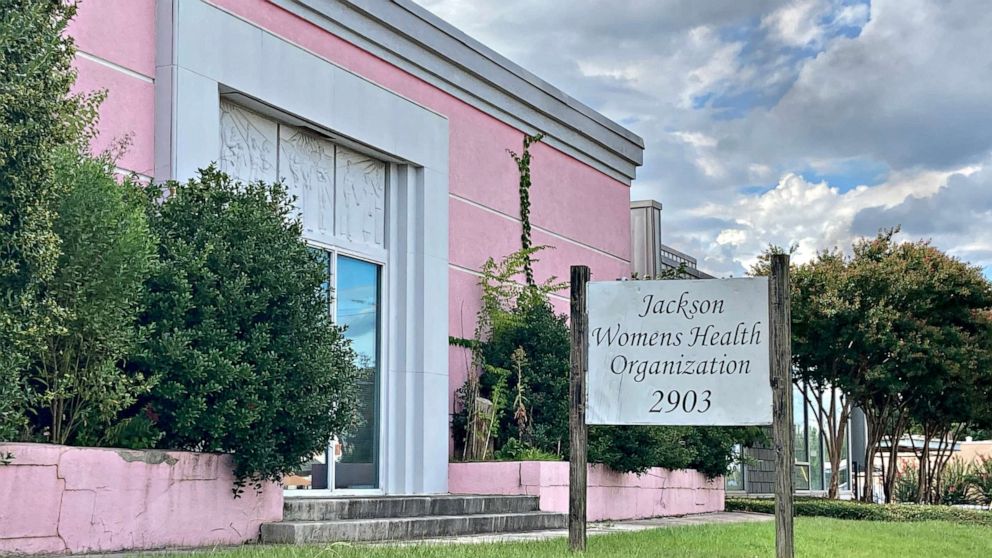Mississippi abortion clinic braces for Supreme Court showdown over Roe v. Wade
JACKSON, Miss. -- Mississippi’s last remaining abortion clinic is a survivor of decades of protests, vandalism and legal challenges to curtail a woman’s right to choose. Now, it’s on the front line of what advocates call an existential threat to American abortion rights not seen in nearly 50 years.
"Death by a thousand cuts is a real thing. But this is a very tangible decision that, if they make it, will overturn Roe v. Wade," said Kim Gibson, a volunteer patient escort outside Jackson Women’s Health Organization. "This will affect the whole country."
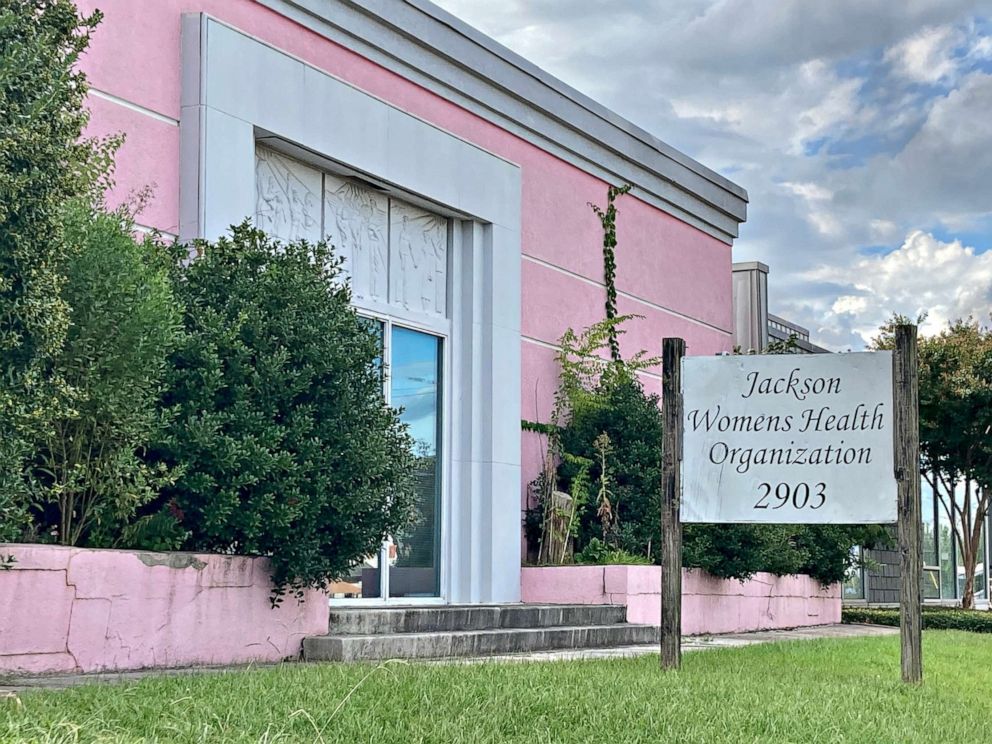
Even as Texas stunned the nation this month with a ban on nearly all abortions, Mississippi has been laying legal groundwork at the U.S. Supreme Court for a sweeping decision that could dramatically reshape a woman’s access to abortion services nationwide.
In a major case to be heard Dec. 1, the state is asking the justices to overturn longstanding legal precedent that restrictions on abortion access before a fetus is viable outside the womb -- around 22 to 24 weeks of pregnancy -- are categorically unconstitutional. Mississippi wants to ban abortions after 15 weeks, or even earlier.
"We’re praying that they’ll be bold enough and strong enough to take a stance and write to the right side," said a Hattiesburg, Mississippi, abortion rights opponent, who declined to give her name, while demonstrating outside Jackson Women's Health last month. "I think this is the time."
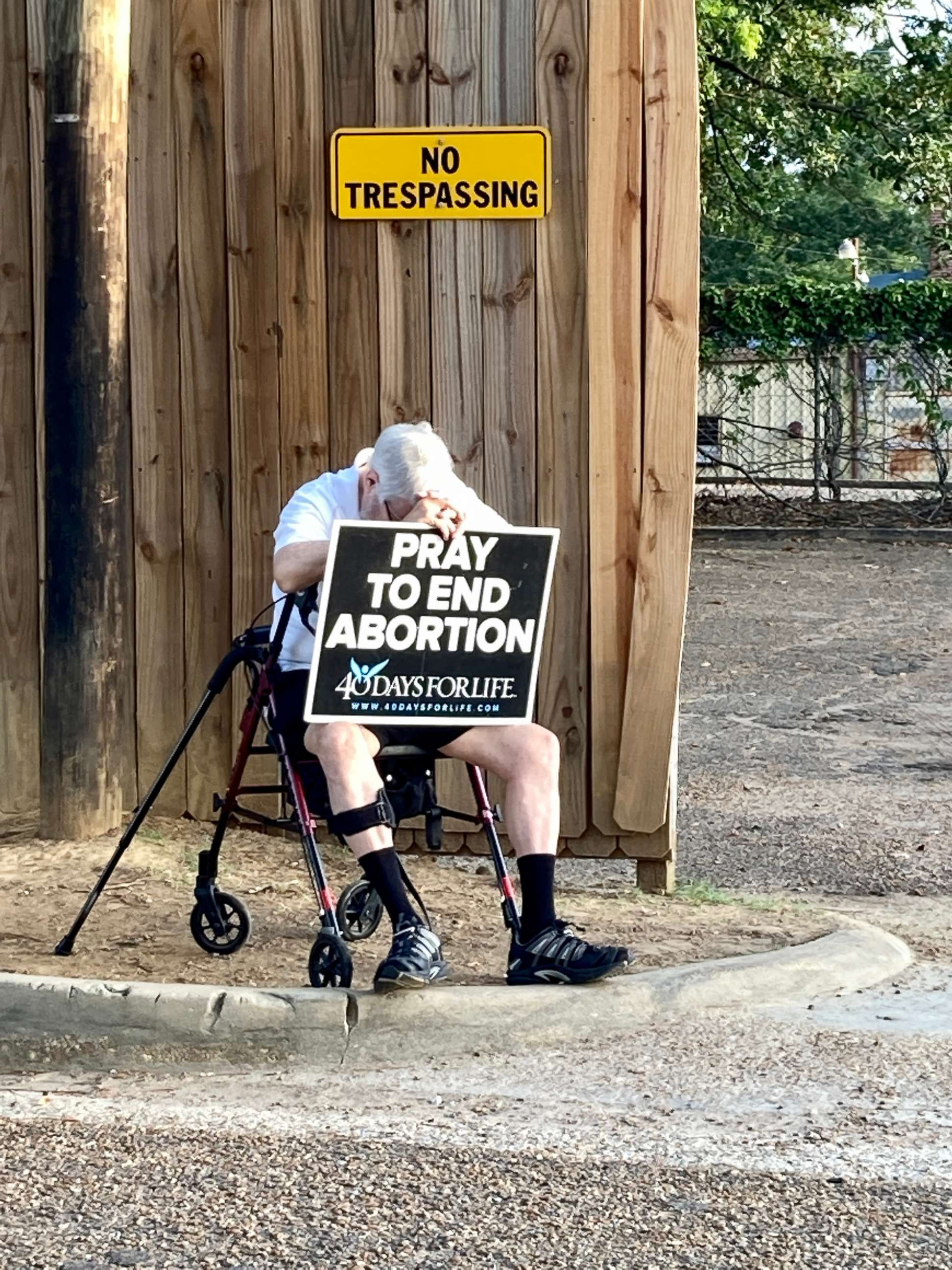
ABC News Live visited the clinic on a sultry weekday last month as dozens of women from across the South arrived for scheduled abortion care appointments. Clinic staff said they’ve seen a nonstop stream of 200 patients a month, or roughly 3000 a year, through the pandemic and the looming legal battle.
"A lot of the surrounding states have passed these crazy laws to where it’s 48 or 72 hours [waiting period before an abortion], and so a lot of the women, instead of waiting that amount of time, they’re traveling from other states coming here," said Shannon Brewer, a Jackson native and mother of six, who has been the clinic’s director for over a decade.
The human stakes in the looming Supreme Court case, Dobbs v. Jackson Women’s Health, were openly debated by protestors, clinic staff, volunteer escorts and the patients themselves on the sidewalks outside the pink colored facility.
“Women of all ages, you know, have to make this difficult decision in their life,” said Nicole, a mother of two who arrived eight weeks pregnant seeking an abortion. "I've also lost a child, and so having a child pass away of health issues, you don't want to bring- you're scared. You don't know if they're going to have that problem, and you don't know if they're going to need medical help and if that's something that, you know, you can take on. It's just not something that my husband and I are ready for. We're just not ready yet."
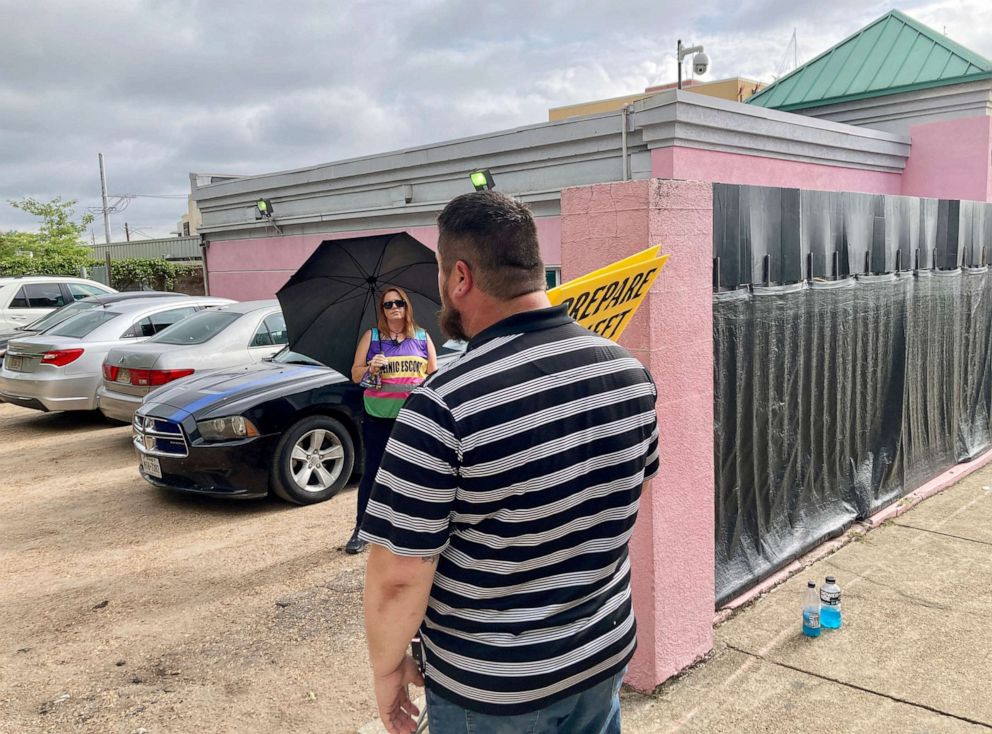
Keith Dalton, a regular demonstrator outside the clinic, said he doesn’t believe in government regulation but wants the justices to eradicate abortion rights as a matter of morality.
"I care about [the women] as a Christian, obviously," said Dalton, a local pastor, father of five and self-described former punk rocker. "But I believe there’s sin, and I’ll call it out. At the same time, I do care, because I was once bound by my sin."
On the day ABC News visited, nurses were preparing for five scheduled surgical abortions and 30 medication abortions, the most common method used to terminate pregnancies in the state and nationwide. The drug Mifepristone is administered in the office, as required by law; then, a second drug course of Misoprostol is taken at home.
"This is not something that a woman just decides she wants to do," said Brewer during a tour of the facility. "This is something that when a woman decides to have an abortion, this is something she’s already thought about long and hard before she ever comes here."
In the waiting room, women patients -- who were masked and seated six-feet apart for COVID-19 precautions -- shared with ABC their sense of anxious anticipation for the procedure and relief that it was an option for resolving an unwanted pregnancy.
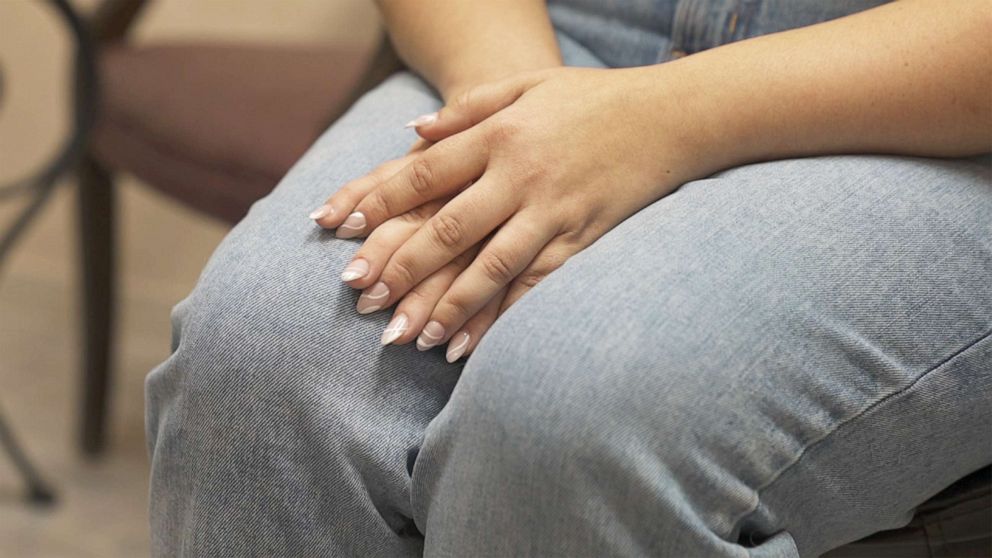
"I came in kind of wishy washy, but I feel like I have been well informed as well as taken care of mentally in the way that they treat patients," said Aaliyah, a 20-year-old Mississippi woman 14 weeks pregnant who asked not to give her real name.
Twenty-seven-year-old Erin, 10 weeks pregnant and who also asked not to give her real name, said she drove two hours across the state for her appointment. "I wish there was more places like this closer, you know, just kind of everywhere," she said.
In 1996, when the clinic first opened, abortion care was available at nearly a dozen facilities across Mississippi. But a subsequent cascade of onerous state laws gradually forced many of those clinics to close, advocates said.
By 2006, Jackson Women’s Health was the only clinic left, and in 2013 it was nearly forced to shut down before a federal court blocked a state hospital admitting privileges law that the clinic said would have left it without any doctors.
"How great of a job are we doing as a people, as women, as, you know, ‘pro-choice’ people? How great of a job are we really doing if we’re the only ones that are open?" Brewer said wistfully. "I’m doing a great job coming in every day and making sure we’re doing what we’re supposed to be doing in this building right now, but as a whole, how great of a job are we really doing?"
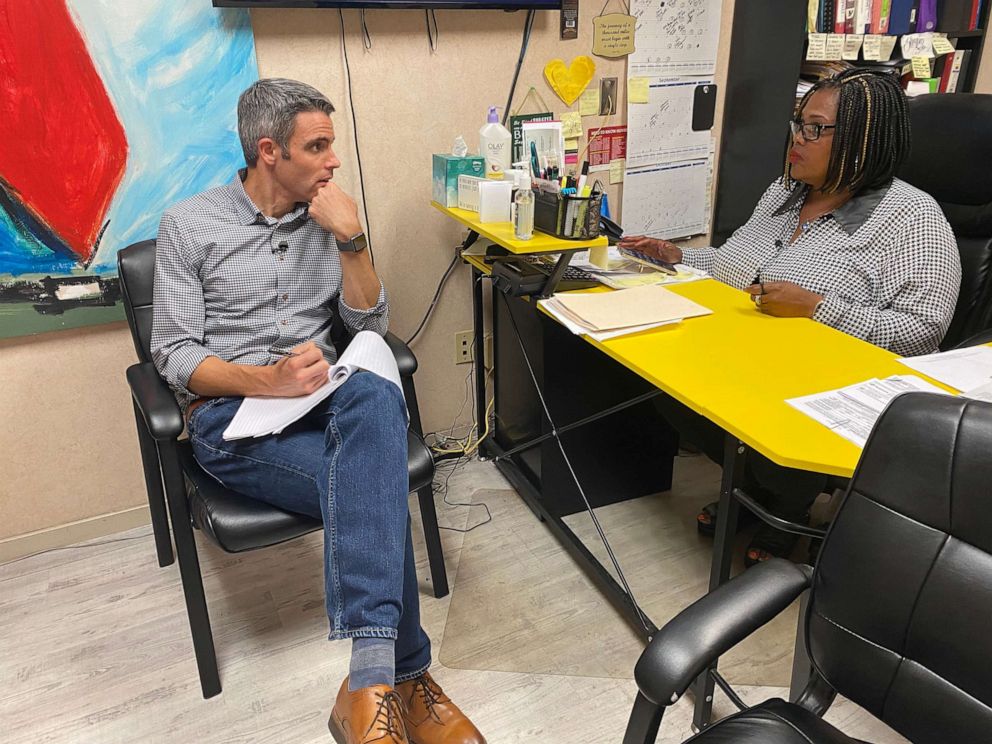
Attorney General Lynn Fitch, who’s leading Mississippi’s case at the Supreme Court, and officials from Pro-Life Mississippi and the Center for Pregnancy Choices, leading state anti-abortion groups, all declined to speak with ABC News about their efforts.
A lawyer for Mississippi told us off-camera that the state believed the 1973 Roe v. Wade decision was "egregiously wrong" and that there’s no fundamental right to abortion in the text of the Constitution. The court’s precedent has "damaged the democratic process, poisoned our national discourse, [and] plagued the law," state attorneys write in their brief to the high court.
Mississippi also argues that a lot has changed in nearly 50 years: "adoption is accessible and on a wide scale, women attain both professional success and a rich family life, contraceptives are more available and effective, and scientific advances show that an unborn child has taken on the human form and features months before viability,” the state writes. "States should be able to act on those developments."
Brewer and attorneys with the Center for Reproductive Rights, which represents the clinic, insist the Supreme Court’s precedent has been repeatedly affirmed and should be respected and upheld. Nearly 20 years after Roe, the court made clear Planned Parenthood v. Casey that state abortion restrictions could not impose a "substantial obstacle in the path of a woman seeking an abortion before the fetus attains viability." The 1992 opinion was penned by three conservatives: Justices Sandra Day O'Connor, Anthony Kennedy and David Souter.
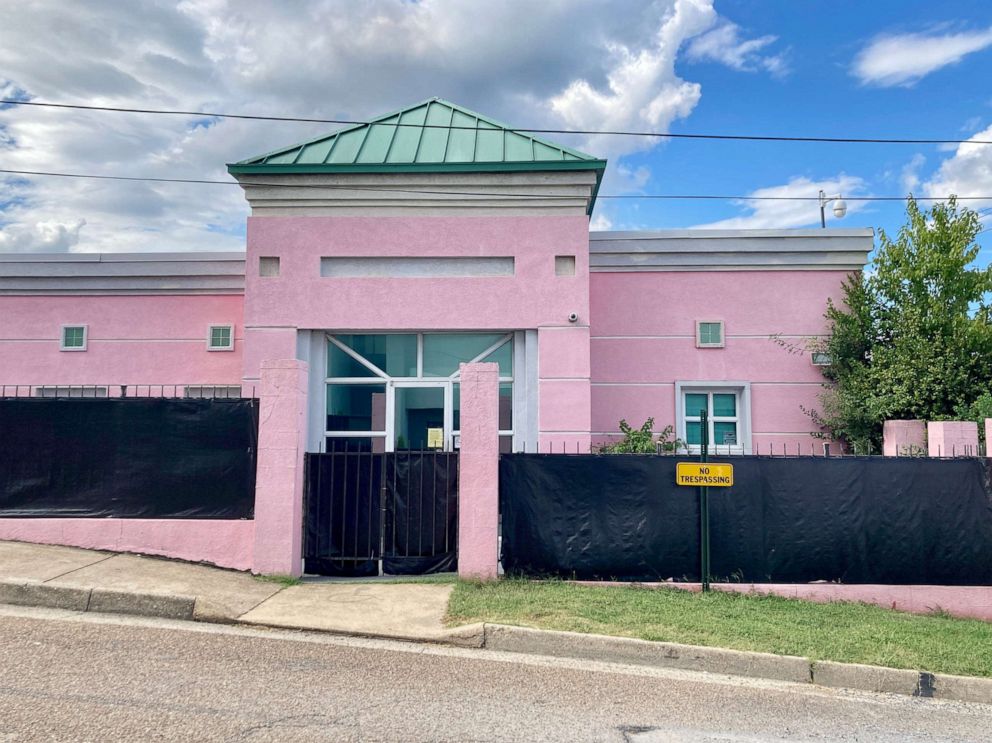
"I kind of think about the [justices] that are on there now, but I’m not quite sure if these people actually want to be remembered for overturning [Roe]," said Brewer about her outlook on the case. "I’m not convinced of that quite yet, honestly."
The abortion rights case is the first major test on the issue for the three justices appointed by President Donald Trump -- Justices Brett Neil Gorsuch, Brett Kavanaugh and Amy Coney Barrett -- whom he said he picked with the express intent that they would overturn Roe v Wade.
"You know, if you’re taking anything away from a woman, anything - any right that a woman has, if you’re taking one day, one minute, one second from a woman -- you’re still taking that right from a woman regardless," Brewer said.
With those rights on the line, Derenda Hancock, co-founder of the volunteer patient escort group Pink House Defenders, helps keep the path clear for as many women as the clinic can handle, directing traffic at the clinic’s small parking lot and acting as a buffer between patients and demonstrators.
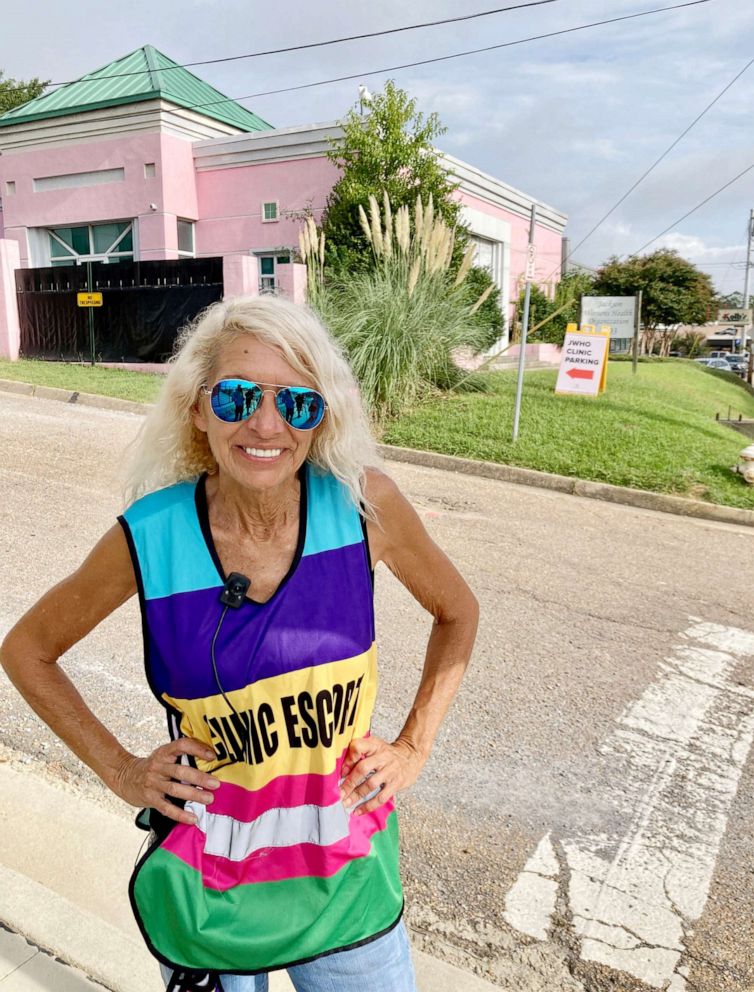
"Years ago, I had the ability to make the best choice for me, which was to have an abortion. And I think, over the years people have gotten, I guess, complacent, expecting that Roe v. Wade and legal abortion will always be available to them," Hancock said of the pivotal moment for abortion rights.
"This one is the breaker. This is the one that says there will still be access to abortion in Mississippi or there won’t," Hancock said.
The Supreme Court is scheduled to hear arguments in the Mississippi case in December and will hand down a decision by the end of June next year.
